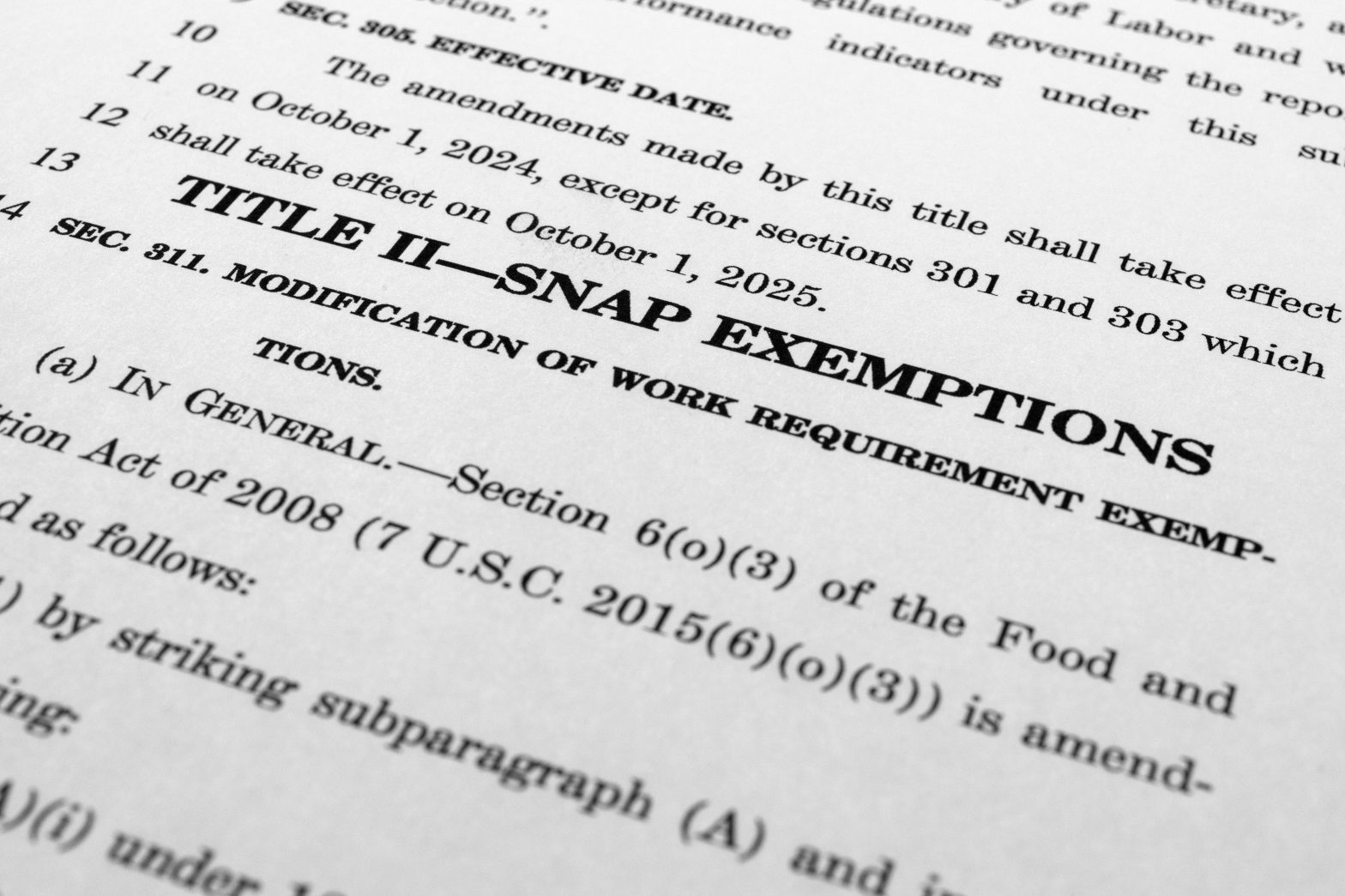Work Requirements, Medicare and HCBS: Fighting to Step Forward, Not Back
COMMENTARY

There is much to reflect on about the recent events in Washington surrounding the debt ceiling crisis. In the end, both sides agreed to a plan and the country escaped default.
But what should not go unnoticed in that discussion is what almost happened.
Up until the 11th hour, Republican negotiators put work requirements for Medicaid in some form firmly on the table. This caused alarm for many in the health care community, and while a huge groundswell of action succeeded in removing these requirements from the final package, this appetite for work requirements showed a fundamental misunderstanding of what policies like this would mean for our most vulnerable.
Even worse, it showed a willingness to strip health care from those that need it most when we should be fighting to ensure their access to care.
But even though the debt ceiling didn’t include work requirements in the end, we know this won’t be the last time they will be considered.
Let’s be clear. Work requirements are not about work.
They are about weaponizing red tape to reduce the number of people on Medicaid and, further, don’t address the mythical issue of people “living” off of government handouts they purport to “solve.” Ninety-three percent of those in the Medicaid expansion group are either working already, caregivers, students or unable to work due to illness.
Look no further than Arkansas’ attempt at work requirements to know that a federal version is likely to hurt far more people than it helps. Before a federal court put a stop to Arkansas’ work requirements program, more than 18,000 people lost coverage in a seven-month period, not due to ineligibility but rather to procedure and paperwork issues with their redeterminations.
Arkansas provided a frightening preview of what could happen nationally if Republican negotiators got their way.
This discussion of work requirements is unfortunately paired with the fact that many of us do not have adequate access to health care to begin with. Rather than focusing on stripping health care from those that need it most, we should be supporting increased access to medical care.
Those in the neuromuscular disease community are adamant about reforming Home and Community Based Services programs. These reforms can greatly improve how upwards of 650,000 people access health care and live their daily lives.
HCBS programs allow people that need extensive health care to receive services in their homes or communities rather than being forced to relocate away from their loved ones to receive needed care in another facility.
As of 2021, nationwide there were 650,000 people on a waiting list for HCBS, the vast majority of whom have a disability. A large part of the reason for this waiting list is driven by a shortage of HCBS workers, who receive low wages, if any, for the services they provide.
According to the Professional Healthcare Institute, HCBS workers have a turnover rate of 40%-60% annually, much higher than the overall health care rate.
There are three bills that seek to address these issues. One would guarantee access to HCBS for those who qualify, like Medicare or Social Security, and help address the workforce issue by incentivizing states to better train, retain and recruit their workforce.
Another bill uses Medicaid funds to incentivize states to support more HCBS services. It also creates permanent funding for a federal program to support HCBS, removing it from the fraught appropriations process.
And the third seeks to give proponents of reform another chance to address the workforce shortage by addressing the issue in its own bill in the Senate.
Congress has an opportunity to help get hundreds of thousands of people access to better care and to support the indispensable workforce that provides these services. But instead, many in Congress are too focused on instituting harmful work requirements that will only further damage access to care.
Contact your member of Congress now and ask them to protect and bolster access to care.
Joel Cartner is a lawyer and public policy professional currently working as the Muscular Dystrophy Association’s director of Access Policy. Cartner leads MDA’s efforts in conceiving, enacting and supporting the implementation of public policy proposals that expand access to care for the neuromuscular disease community. Cartner has a background in public health, disability, and education law and policy. He received his J.D. from Quinnipiac University School of Law and his B.A. in Political Science from the University of North Carolina Wilmington. Cartner can be reached on LinkedIn and MDA through their website.
























